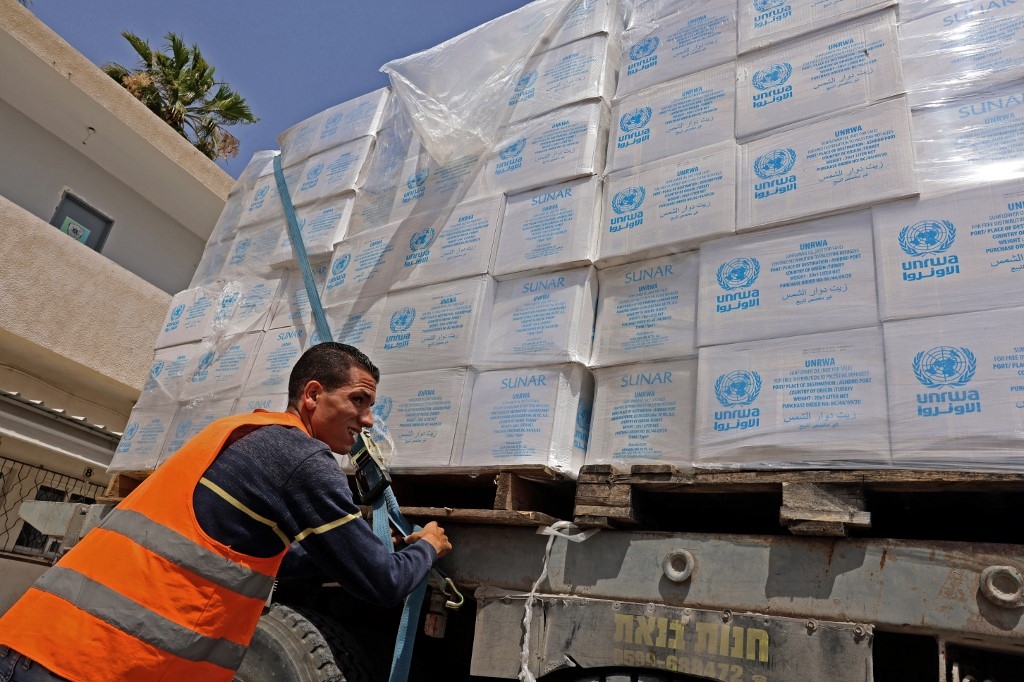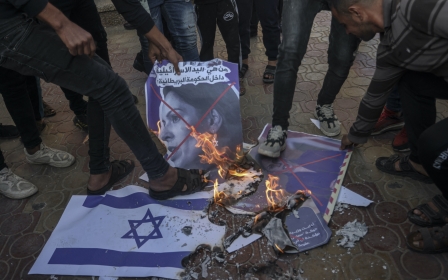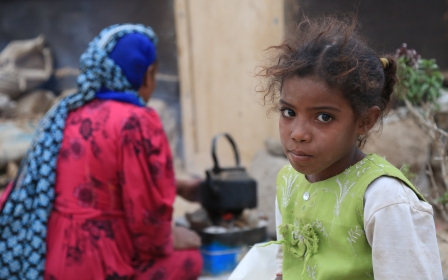Will UK's proscription of Hamas stop charity work in Gaza?

A British Muslim charity that delivers aid to Gaza and experts are concerned that new legislation proscribing the Hamas movement as a terrorist organisation will hinder charity work inside the besieged Palestinian territory.
An amendment to the Terrorism Act 2000 passed through the lower house of the UK parliament without a vote on Wednesday following a debate, proscribing Hamas's political wing as a terrorist organisation. It will go to the upper chamber, the House of Lords, on Thursday.
The group's military wing was designated as a terrorist organisation in 2001.
Publicly supporting Hamas will now carry a prison sentence, but it remains unclear what the impact of the proscription will be on charities who operate in Gaza - the Palestinian territory ruled by Hamas, under a crippling Israel-led siege since 2007.
Jahangir Mohammed - the CEO of Communica, an organisation that advises local and international charities - said the move shifts the status of Gaza as "now being governed by a terrorist entity, which means charities will have to consider very carefully what work they consider doing in the territory.
"Most charities have some contact with the Hamas government and its departments, even when working through NGOs in Gaza. The designation may mean aid groups could be accused of having links to a terrorist group," Mohammed told Middle East Eye.
"This move is ill-considered because the UN and the EU deal with Hamas's political wing and have a relationship, and aid is much needed in Gaza.
"Gaza is going to be very difficult for charities to work in, because they may be investigated for contacts with a terrorist entity. Trustees could be at risk of breaching terrorism laws," he added.
'The new law is unclear in what it means in practice, because a ban could have a possibly detrimental effect on travelling to deliver aid'
- Nur Choudhury, Human Aid
Nur Choudhury, the chair of London-based NGO Human Aid, echoed Mohammed's worries and said delivering aid to Gaza could now become more difficult.
"The new law is unclear in what it means in practice, because a ban could have a possibly detrimental effect on travelling to deliver aid and ... affect the work we do in Gaza," Choudhury told MEE.
"We already have a rigorous checking process, but now have to do additional checks to ensure where the money is going and confirm with our partners on the ground that they are not on a proscribed list," Choudhury added.
"For example, we work closely with al-Shifa hospital, the largest hospital in Gaza City, which hosts a trauma wing that we support. Would our interaction with al-Shifa now be classified as working with Hamas?"
Risk to banking
The biggest issue raised by both Mohammed and Choudhury was the impact Hamas's proscription by the UK will have on the bank accounts of charities working in Gaza.
"Another issue for charities, even if it is permissible to deliver aid, will be that banks will deem it a high-risk activity to transfer funds to Gaza," said Mohammed.
"A similar concern exists with Afghanistan, where some senior Taliban officials who have been designated terrorists are now senior members of the government," he added.
'Charities working in unstable or high-risk areas overseas may need to take additional steps to manage any risk of associations with terrorist activity and organisations'
- Charity Commission
"The government and Charity Commission need to give clear guidance on humanitarian aid to Gaza and Afghanistan and confirm that charities engaged in humanitarian aid will not be accused of having links to terrorism."
The Charity Commission confirmed to MEE that it had not issued new guidance in light of the new legislation vis-a-vis Hamas' political wing.
"All charities must comply with the law, and our guidance makes clear that charities must not act in a way that could lead a reasonable member of the public to conclude that it or its trustees are associated with a proscribed organisation or promoting or supporting terrorism," a spokesperson said.
"This applies to all charities, regardless of where they operate. But charities working in unstable or high-risk areas overseas may need to take additional steps to manage any risk of associations with terrorist activity and organisations".
The Home Office declined to comment to MEE, but forwarded links to the Charity Commission's existing guidance.
Hugh Lovett, a senior fellow at the European Council on Foreign Relations, said that the new proscription of Hamas will "increase a charities legal risk and administrative burden when operating in Gaza".
"A lot of these aid organisations, depending on where they are registered, already have to deal with US counter-terrorism requirements and deal with requirements set out by the EU and its member states," said Lovett.
"Even before proscribing the entirety of Hamas as a terrorist organisation, the UK already has rules in place to prevent money going to terrorist groups. So the question is how much more this proscription will actually do to curb Hamas's financial operations."
Middle East Eye propose une couverture et une analyse indépendantes et incomparables du Moyen-Orient, de l’Afrique du Nord et d’autres régions du monde. Pour en savoir plus sur la reprise de ce contenu et les frais qui s’appliquent, veuillez remplir ce formulaire [en anglais]. Pour en savoir plus sur MEE, cliquez ici [en anglais].





